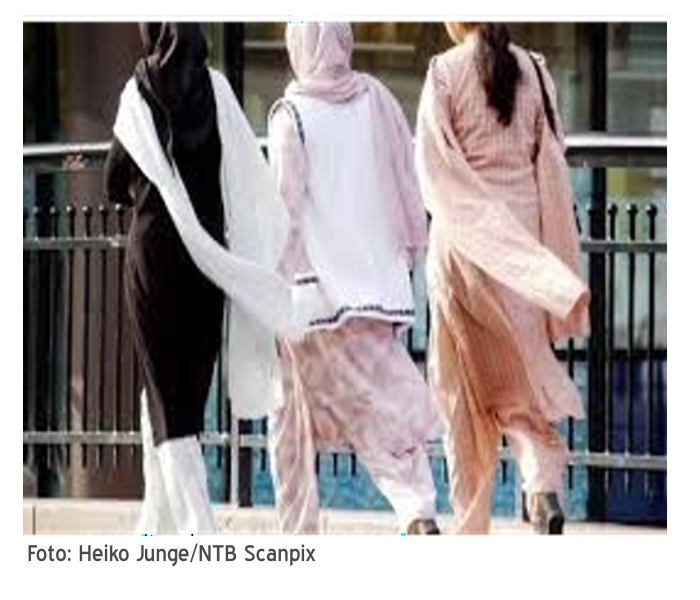Immigrant Women’s Lives Are Not a Joke — This Is a Crisis We’ve Been Warned About.
Too often, immigrant women’s struggles are dismissed, distorted, or weaponized in public debates. This isn’t just unfair — it’s a crisis we have been warning about for years. Real change demands that we listen with respect, acknowledge systemic barriers, and act with courage and responsibility.
How do we create real change for immigrant women in Norway? It’s not by casting suspicion on them. Not by boiling their lives down to questions of religion or culture. Real change happens when we listen, understand and act. Without the courage to face reality honestly, the change we so desperately need will remain out of reach.
Too often, when immigrant women raise their voices to highlight serious challenges, they are met not with curiosity or thoughtful engagement, but with suspicion, derailment, and condescending remarks. This was precisely the case when I recently published a piece presenting documented facts about public health, loneliness, and mental health challenges faced by immigrant women in Oslo.
Rather than engaging substantively with these facts, Lily Bandehy — who herself has an Iranian background and a long history in Norwegian public debate — chose to reduce the discussion solely to issues of religion and culture. Her well-known debating style is marked by prejudice and an implicit expectation of assimilation rather than genuine, equitable inclusion. From my experience, she often uses a familiar tactic: turning big, systemic problems into issues about individual behavior or culture. This shifts the focus away from the real, structural causes and the urgent political changes needed to address them.
You can read her response here.
My post wasn’t about faith or ethnicity. It was about women who, in one of the richest countries in the world, carry a disproportionately heavy burden — mentally, socially, and economically. This is about public health, about equality that still leaves many behind, and about fundamental human dignity. When these realities are met with polarizing rhetoric and simplistic dismissals, we lose more than just the debate — we push marginalized women further outside the community.
Taking Responsibility Without Mockery or Suspicion
Pointing out that the welfare state doesn’t reach everyone isn’t “complaining.” Highlighting systemic failures isn’t “whining.” It’s about taking responsibility — for us and the society we share. If we want real trust, inclusion, and participation, we need to be willing to talk about reality as it is — not how some want to portray it.
I share the desire to challenge unhealthy cultural practices. I have done so openly, honestly, and uncompromisingly for years. But change doesn’t come from moralizing or contempt. Kicking downwards helps no one. When complex challenges are met with scapegoating, we silence voices and deepen feelings of powerlessness. That benefits no one. Change requires trust, dialogue, and concrete action.
Bandehy’s attempt to connect welfare fraud to immigrant women’s mental health struggles is a known diversion. To be clear: I was among the first to publicly address welfare fraud. It was costly, but it led to solutions — not through mockery, but responsibility. The same applies to the fight for women’s representation in mosque leadership. We have stood firm because it was necessary, not easy.
Real change comes from persistence and bridge-building — qualities missing from Bandehy’s rhetoric.
We Need More People Lighting Candles — Not Fires
When immigrant women are caricatured as lazy, oppressed, or trapped by religion, it undermines both their voices and the realities we strive to highlight. But what’s the real goal behind these simplifications? Change — or division?
The women at the heart of this conversation face very real and complex challenges: language barriers, low education, mental health struggles, economic vulnerability, lack of networks, and discrimination. These are structural barriers, and raising them is a call for opportunity, independence, and dignity. Is that so hard to understand? Behind the stereotypes are mothers, colleagues, and neighbors — women who contribute to society while carrying heavy burdens. Women who have raised generations society is proud of. These women deserve respect, recognition, and real listening — not mockery or mistrust.
She claims to fight for women’s freedom yet uses her voice to undermine those who don’t fit her narrow norms. When complex social problems are reduced to “culture” and legitimate needs dismissed as “complaints,” she promotes stigma, simplification, and stagnation not liberation.
Freedom without justice is empty. True liberation needs politics, not rhetoric. Issues like low education, mental health, social isolation, and economic vulnerability aren’t solved by suspicion but through inclusive policies and systemic change that create real choices.
She must be held accountable for what she actually contributes: division, not community; conflict, not solutions. This isn’t just simplistic — it deepens exclusion and powerlessness.
If she truly cared about women’s rights, she’d acknowledge the complexity of women’s lives and champion measures that create safety, mobility, and belonging — not demonize those outside the majority’s comfort zone.
So, we must ask: What builds up — and what tears down? What brings people in — and what pushes them out?
This isn’t about who shouts loudest, but who takes responsibility. A just society isn’t built by those who ignite fires of polarization, but by those who dare to light candles — for everyone, including immigrant women.
I choose solutions. What about you?
Originally published in Utrop, with minor edits.





